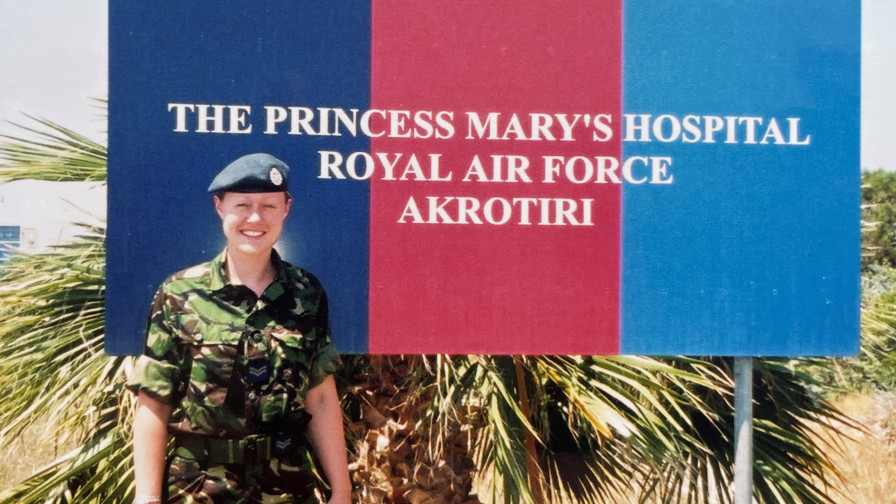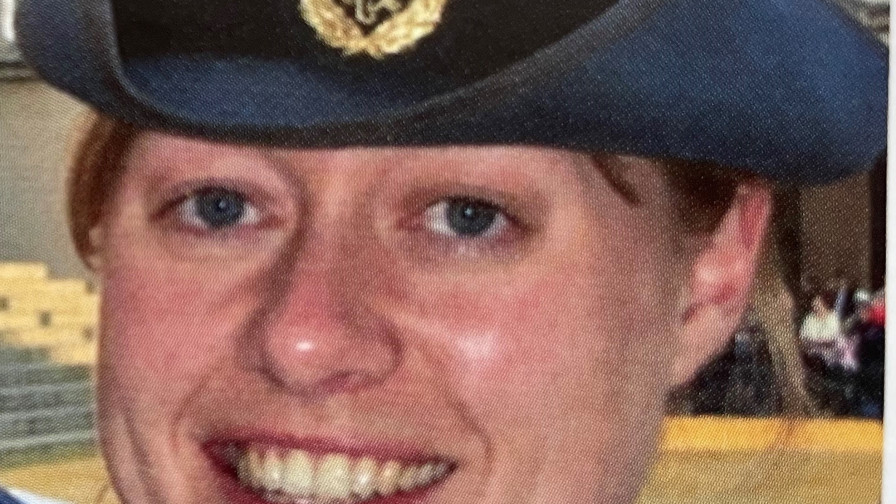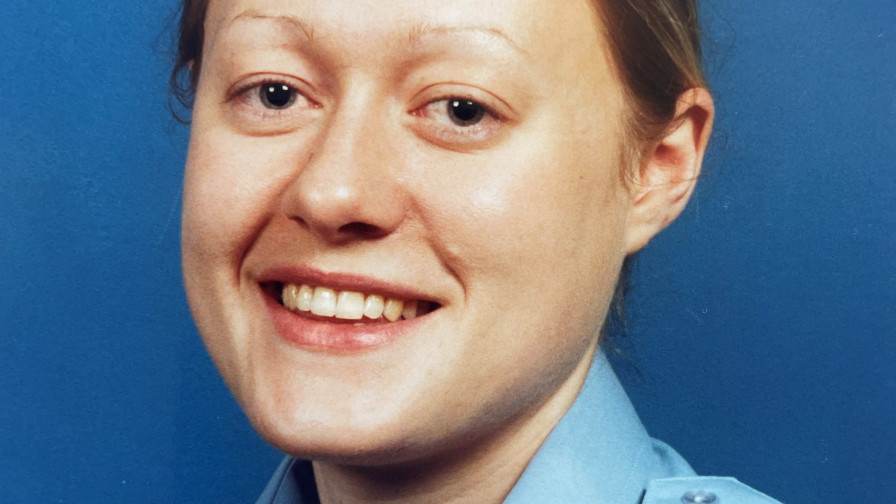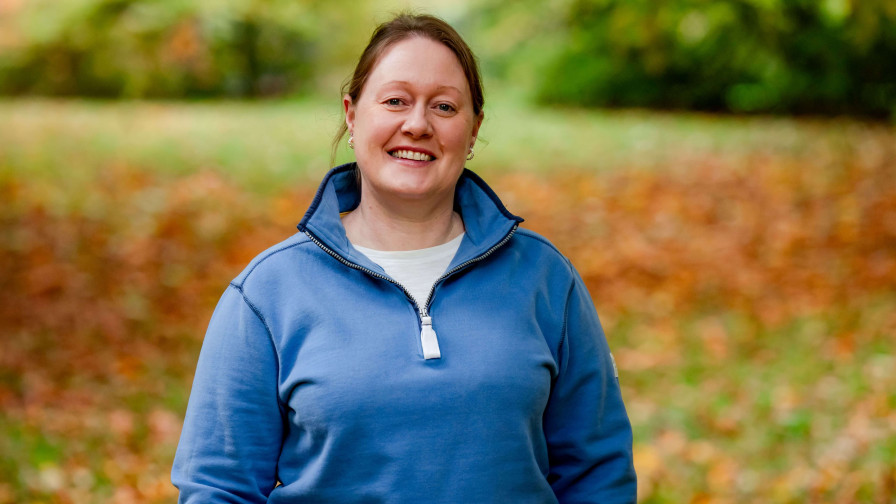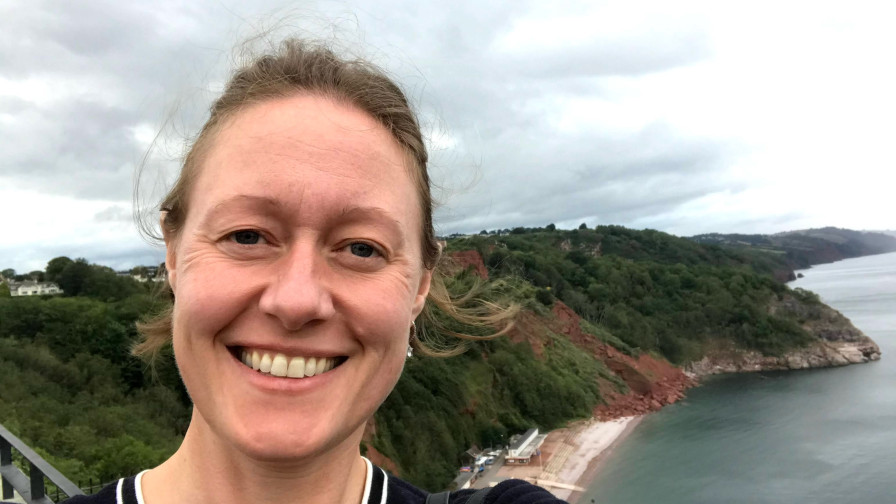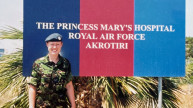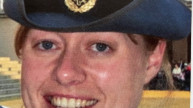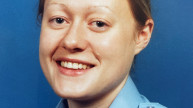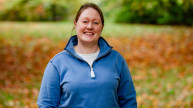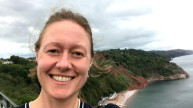Clare's Story
“It was life-changing – there are no other words.”
Clare joined the RAF at 26 after first training as a nurse on Civvy Street. She took her skills into the Royal Air Force, but bullying and a traumatic deployment on Op Telic in 2003 left her with PTSD. Clare spent years experiencing flashbacks and nightmares until her treatment with Combat Stress helped her to truly live again.
Clare spent nine years working as a nurse in the RAF, with postings to RAF Akrotiri in Cyprus and Headley Court Rehabilitation Centre in Surrey. “I loved the camaraderie of military life,” she says. “That was the best bit. I did find my role tough at times though and morally I’d struggle, having to carry out orders without questions is not always easy and can be conflicting.
“At mealtimes at Headley Court I’d have to make sure young soldiers could only have two sausages on their plate. You’re talking about young lads who’d had limbs blown off and I’m supposed to tell them only two sausages. I found that incredibly difficult because my heart was crying for these young lads who were maimed, and I’m looking over their shoulder telling them how much food they were allowed. There was a lot of conflict in myself having to follow these orders without questioning them and being the person having to enforce the rations."
Clare experienced bullying whilst serving, which she believes contributed to her PTSD. In 2003 she was told she was being deployed on Op Telic. Looking back now after treatment, Clare believes this deployment was the start of her PTSD. “The deployment during the Iraq conflict was the initial cause of my PTSD, the bullying I later experienced contributed, further compounding the PTSD,” she says. “The deployment was very short notice. I got a call half an hour after starting my shift on the ward telling me to go home and pack a bag because I was out on the next flight. It was a massive shock.”
Clare was given a small yellow infographic sheet with what to expect when deployed and when you return home. “Looking back now I think my God, is that the prep we got?” she says. “I was a nurse; I’m not infantry so it was a hell of a shock to one day be on the ward the next put into action.”
Clare was deployed for three and a half months and what she experienced changed her, although PTSD didn’t cross her mind at the time. “I came back and couldn’t watch any films with war or violence,” she says, “I just thought it was normal once you’ve witnessed something bad. For Joe Public it was fiction, but it was real life for me - those things really happen.”
Clare left the RAF in 2011 and realises now that it was down to her undiagnosed PTSD. She returned to working in the NHS but after a couple of years started experiencing flashbacks and nightmares. “There was so much going on in my head that I felt like I wasn’t ever on my own,” she says. “Life was horrendous because I didn’t know what was happening. Everything had been brewing for years but I didn’t know I had PTSD – I just never made the link. I was trying to work, was still raising two kids and trying to have a normal home life. I didn’t have anyone to talk to about it as my husband isn’t military, so I just kept it inside and carried on. It was horrendous, I don’t know how I did it.”
Clare was working as an NHS nurse during the Covid-19 pandemic, when she contracted the virus and almost died in late 2020. After this, her PTSD symptoms escalated. “I liken it to a cupboard that’s full of everything” she says. “On the outside everything was perfect because it was all locked away. But you open the door and stuff starts falling out. Then I had a full breakdown – everything fell out of the cupboard and I couldn’t put it back behind the door.”
Unable to carry on how she was, Clare sought NHS counselling. However, after two sessions her counsellor told her that as her experiences were rooted in her military history, she was unable to help. After calling the Veterans’ Gateway in desperation, Clare was signposted to Combat Stress in 2023 and took part in the first all-women cohort of our intensive treatment service, VICTOR, which she describes as “lifesaving”.
“There’s no way I could have carried on how I was,” she says. “While I didn’t want to end my life, I didn’t want to live like that anymore and couldn’t have carried on, so my treatment was lifesaving. Part of it was Eye Movement Desensitisation and Reprocessing, which was absolutely incredible. I purposely didn’t read up on it before I went as I didn’t want any preconceptions, and I know it’s not for everyone but for me it was amazing. I don’t know where I’d be if I hadn’t done it.”
Clare has completed her treatment and relishes the changes to her life. “I can enjoy things now,” she says. “I don’t have those constant images in my head. I can enjoy a walk in peace and I’m not hypervigilant like I was. I’m not frightened to go to bed anymore in case I have nightmares. It’s hard putting your trust in people, but it was life-changing – there are no other words.”
Clare is now keen to help other veterans, especially women to understand they may have PTSD and know where to go for help. “The public’s stereotypical image of PTSD is a male soldier with a rifle in his hand who’s on the front line,” she says. “But women go through it too and it’s ok to come forward and show yourself. I am now a proud female veteran who no longer feels ashamed, weak or vulnerable.
“We hear all the time that men don’t talk about mental health, which is true. But a lot of women don’t talk about their military service after they’ve left because who are you going to talk to? You’re not going to tell the mums at the school gate all of the horrors you have witnessed. So I want to encourage other women who served and may have PTSD to come forward – you’re not alone and help is out there. You just don’t know it yet.”
July 2025

